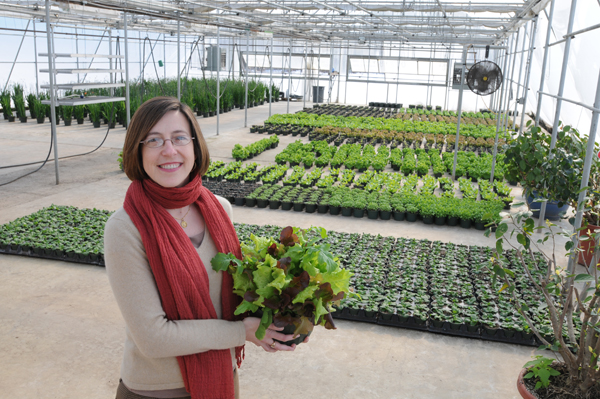Friday, Sep 28, 2012
Prestigious journal publishes project on “Personal Plants,” detailing program of inquiry-based instruction in science.
by Bill Ahearn
Dr. Laura Hyatt, associate professor of Biology, has been named a recipient of Science magazine’s Science Prize for Inquiry-Based Instruction. Her paper, titled “Personal Plants: Making Botany Meaningful By Experimentation,” was included in the issue of the prestigious scientific journal published on September 28.
Hyatt also serves as associate dean for Sciences in Rider’s College of Liberal Arts, Education, and Sciences. She teaches courses on the Principles of Biology, General Ecology, and Sustainability Studies. Research in Hyatt's laboratory is aimed at understanding why and how some exotic plants establish populations that grow very rapidly and alter recipient communities and ecosystems.
The Science Prize was established to encourage innovation and excellence in education by recognizing outstanding, inquiry-based science and design-based engineering education modules. Winners are selected annually by the editors of Science, which is published by the American Association for the Advancement of Science, with the assistance of a judging panel composed of teachers and researchers in relevant science and engineering fields.
The paper published in Science is based on lessons Hyatt developed to stimulate college-student interest in plant biology. “Students are often blind to plants because they don’t move around,” Hyatt said. “But this very property of plants has led to the evolution of some pretty sophisticated adaptations. They conduct chemical warfare and compete intensely for resources, just on different temporal and spatial scales than we are familiar with. This project simply asks students to investigate the reasons behind common gardening practices. In the process they become actively involved in the scientific method, and gain a deeper understanding of and appreciation for plants and science in general.”
This project was a natural outgrowth of the focus of Rider’s science programs on the learning of science through the doing of science. Students collaborate with faculty on research ranging from the biology of circadian rhythms and salamander development to the synthesis of pyrrole compounds for pharmaceutical applications and the immunology of the tumor microenvironment. Faculty regularly bring their scholarly research into the classroom and provide students with hands-on experiences that prepare them for graduate study and careers in pharmaceutical science, medicine, and beyond. Rider is also home to the Bristol Myers-Squibb Center for the Teaching and Learning of Science, which trains K-12 teachers in using inquiry approaches to enhance science learning across the state. The Center is celebrating its 10th anniversary this year.

